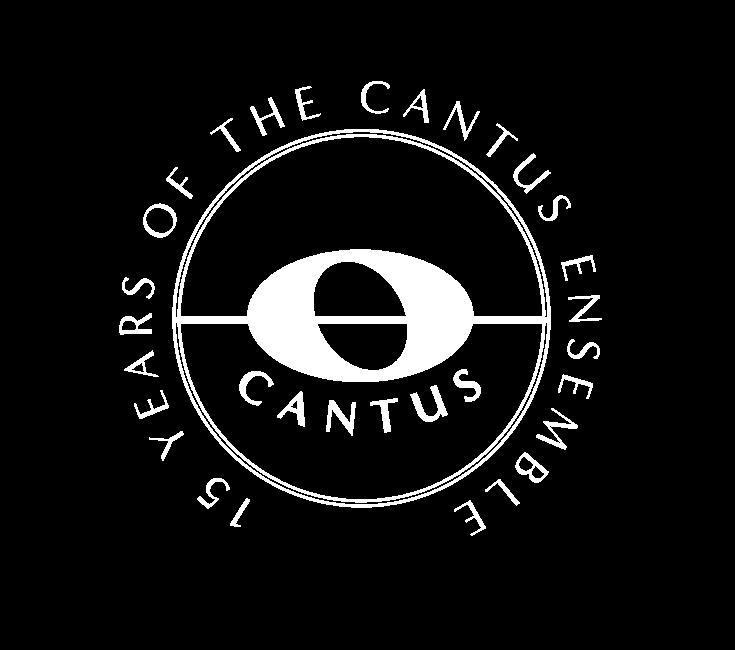

SCHNITTKE CONCERTO FOR CHOIR PROGRAMME
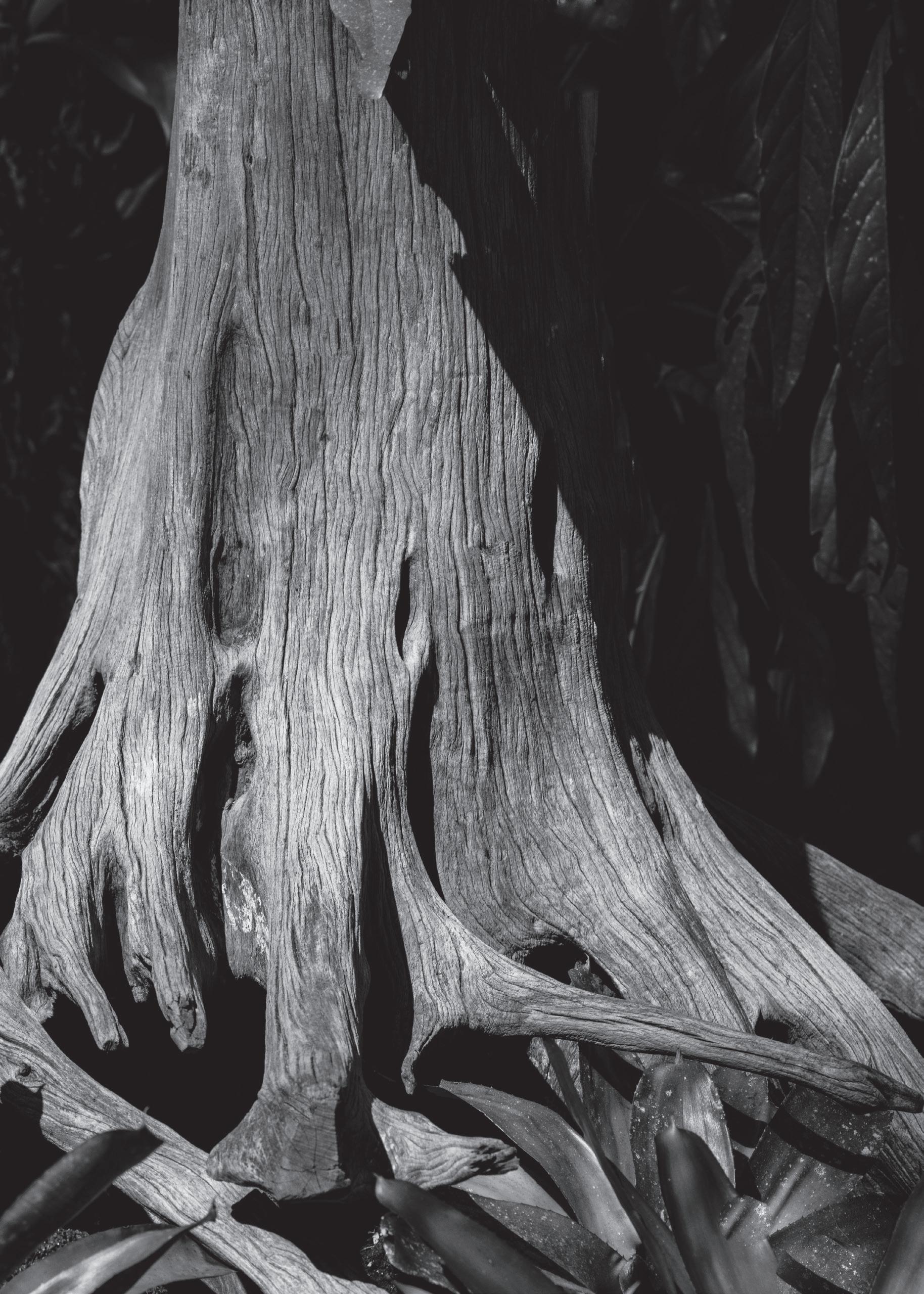
WELCOME
Good evening and a very warm welcome to Farm Street for tonight’s performance of Alfred Schnittke’s Concerto for Choir, the first concert of our fifteenth anniversary season.
The Concerto for Choir is a gargantuan undertaking for any ensemble, its breadth and scope making it one of the most challenging unaccompanied pieces in the choral repertoire.
With that in mind I must first thank the Cantus cohort of 2025/26 for their musical brilliance in and sheer hard work in tackling such a momentous piece of music. I also wish to thank the executive committee, without whom concerts like these wouldn’t be possible.
Our Patrons Managers, Anna and Tom have tonight relaunched our Patronage scheme and I hope that you may consider supporting the choir as we bring similar gripping works from the repertoire to life, culminating in a large anniversary concert in a years’ time at Sinfonia Smith Square.
Looking to the near future, our annual Christmas concert is on Saturday 20 December this year, at St Botolph-without-Bishopsgate in the City and I hope that you will come along to support us, fuelled by mince pies and the best mulled wine around.
Thank you once again for joining us tonight, and I hope you enjoy the concert.
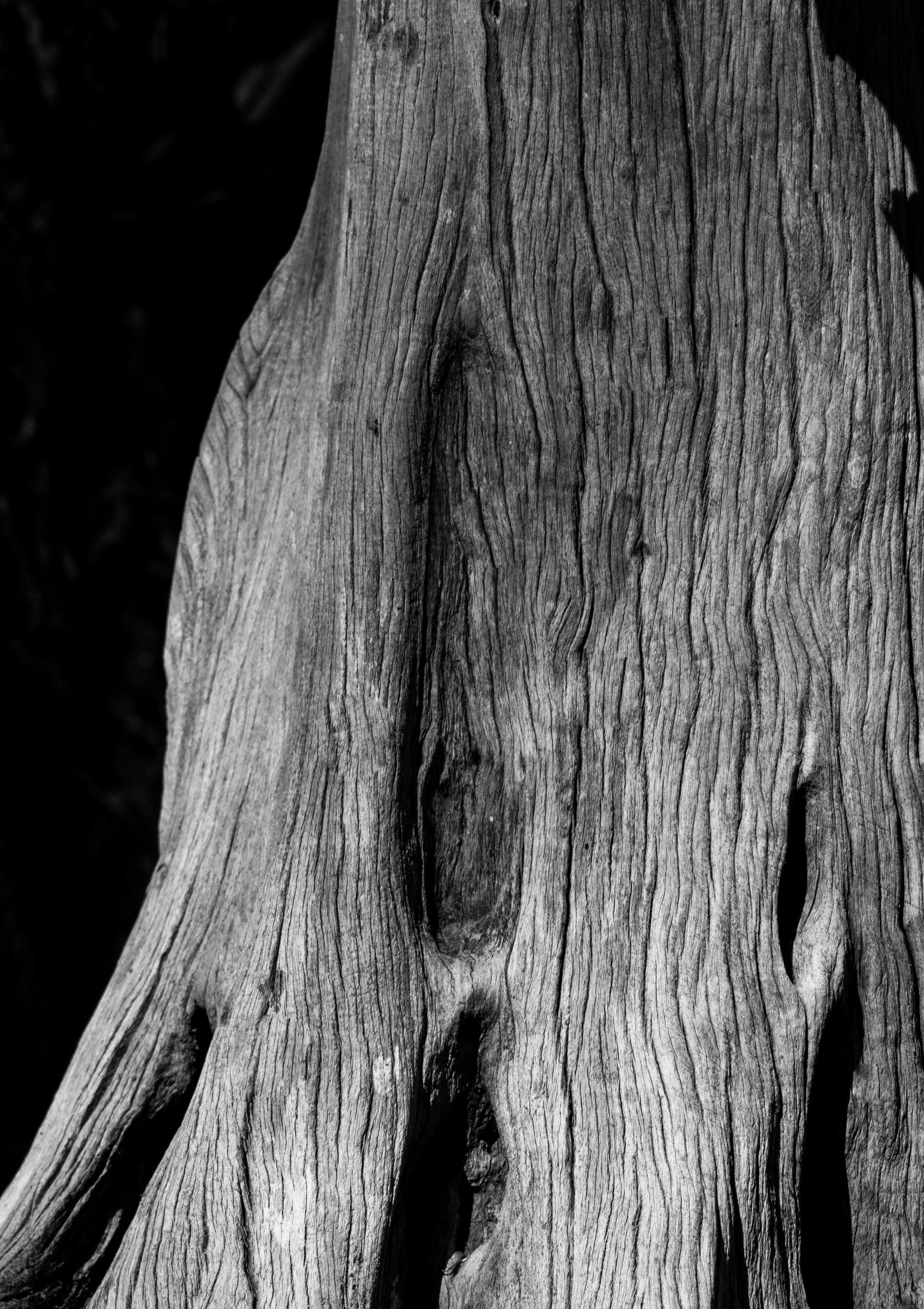
Dominic Brennan
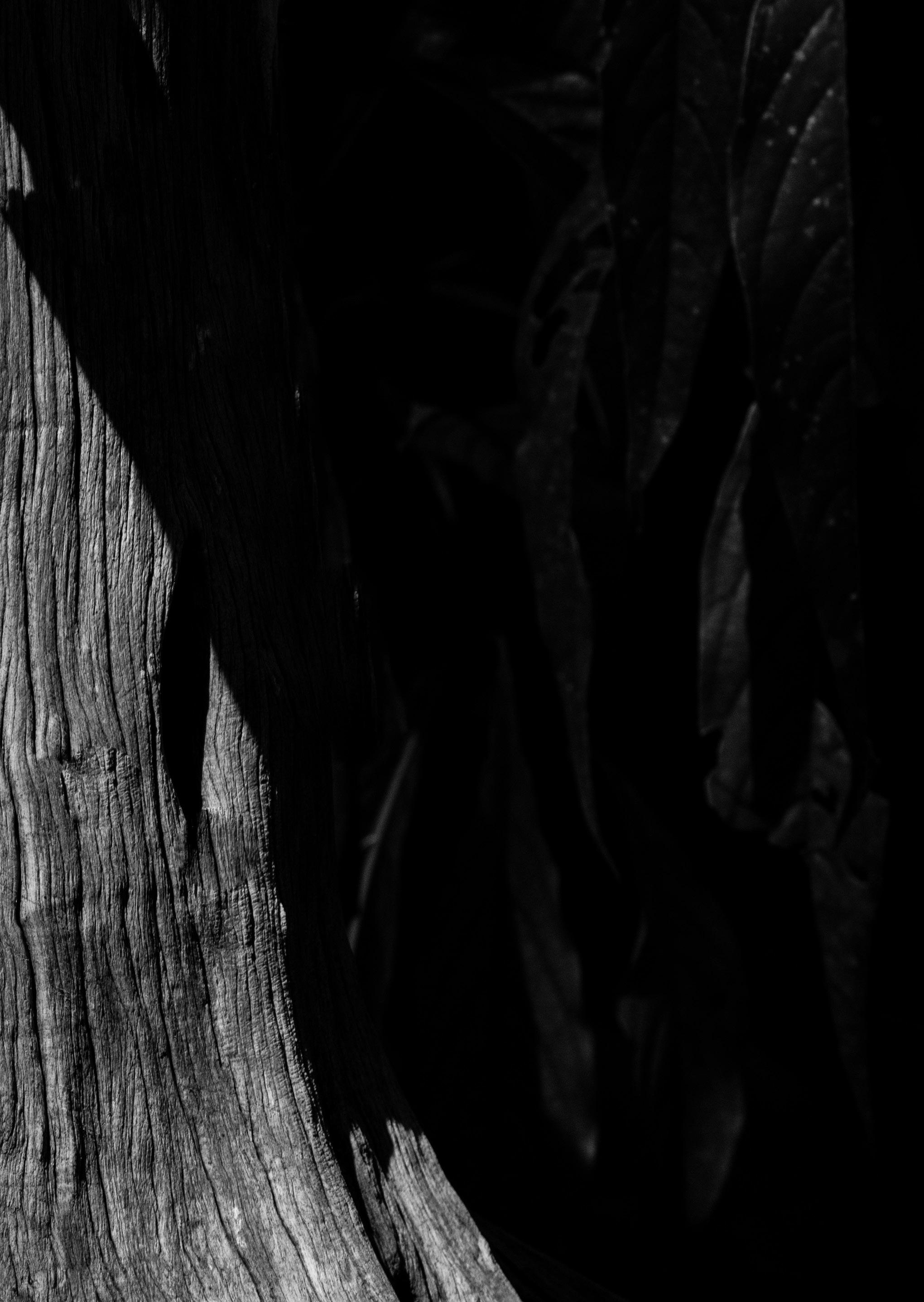
PROGRAMME
The Cantus Ensemble
Conductor: Dominic Brennan
Concerto for Choir Alfred Schnittke (1934-1998)
I. O master of all living things
II. I, an expert in human passions
III. God, grant deliverance from sin
IV. Complete this work which I began
There is no interval in tonight's performance
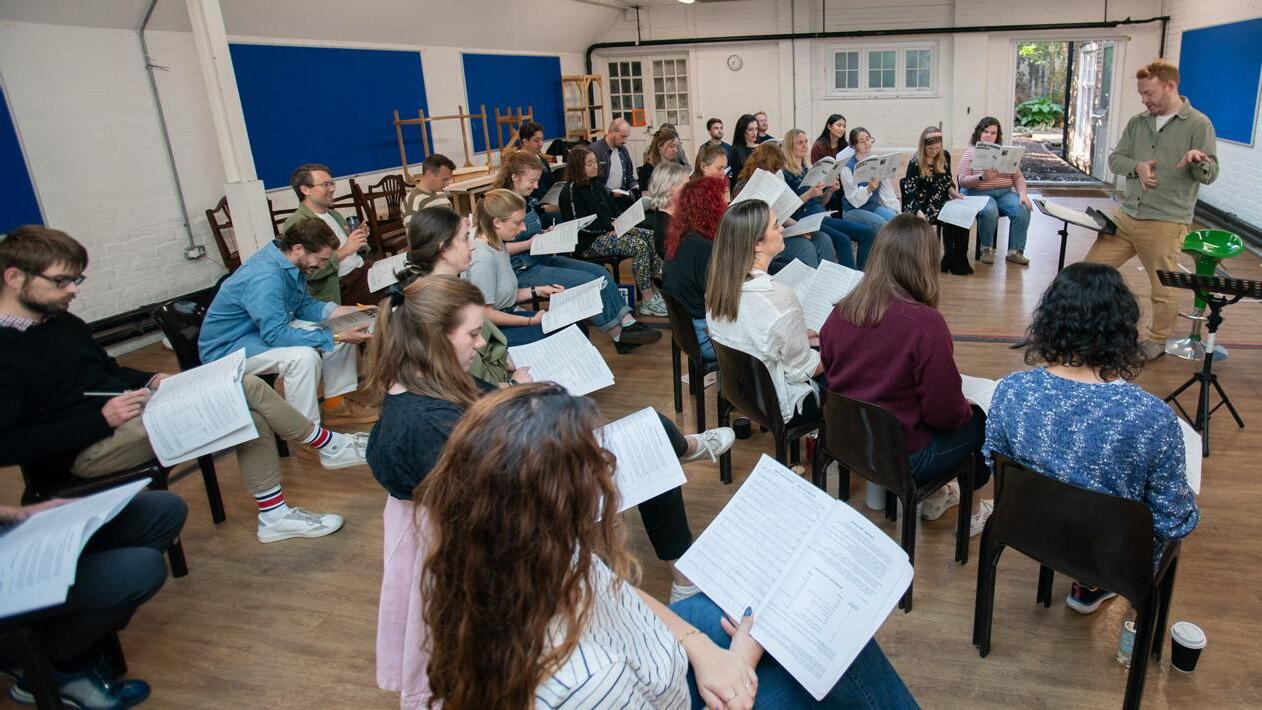
THE CANTUS ENSEMBLE
Honarary patron: Sir James MacMillan
The Cantus Ensemble is an amateur choir – one of the many that thrive amongst London’s diverse arts scene – that, in its short existence of just over 10 years, has gone on to be widely recognised as one of the finest such ensembles in the city.
Every member of Cantus does something other than singing in their day job: current professions in the choir include teachers, lawyers, doctors, priests, TV producers…the list goes on. In short, we all sing in our spare time because we love doing it, and we believe in the transformative power of the arts to engage friends, family, colleagues and entirely new audiences alike.
Cantus separates itself from its peers not only by often tackling fiercely challenging contemporary repertoire, but in its approach to programming – often juxtaposing the ancient and modern together with distinct narrative threads and immersive staging. We also give emerging young soloists a platform, have commissioned several new pieces from living composers, and have given the world and UK premieres of numerous contemporary works.
Founded by Dominic Brennan in 2011 and recorded by the Decca label on Rebecca Dale’s debut album Requiem for my Mother / When Music Sounds, the choir has featured on radio; on BBC Radio 3, Classic FM, Scala Radio; on TV on ITV’s Live at the Palladium and in worldwide ad campaigns for brands including Dassault Systèmes. The choir is proud to have built up strong relationships with groups including Global Radio, The Ned and the Royal Philharmonic Orchestra.
More information on the choir’s upcoming concerts can be found at www.thecantusensembe.com
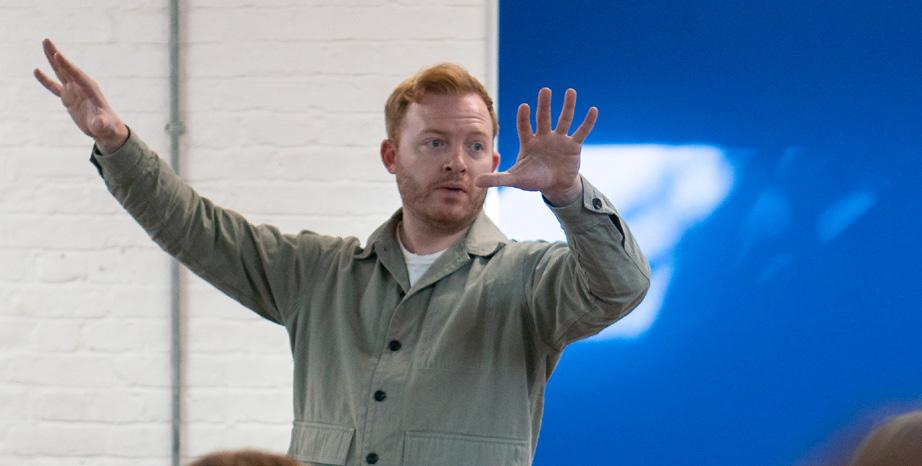
DOMINIC BRENNAN
Dominic Brennan graduated with an MA in Music from Durham University in 2010, having previously completed his BA (Hons) in the same subject. Dominic was a first study percussionist, studying percussion and timpani under Daniel Ellis and Markus Gruett. He studied conducting with Peter Stark.
Dominic founded the Cantus Ensemble in 2011 and, now in his elleventh season as Director, has taken the choir on tour to sing at prominent venues around Europe, steadily building up a reputation for innovative programming, multi-sensory concert experiences & engaging outreach projects. Under Dominic the choir has evolved into London’s finest non-professional choir with a reputation for musical excellence.
Dominic is also the Director of Hampstead Chamber Choir. When not holding a score, he can can be found with a glass of wine in hand as a member of the Fine Wine trade and founder of Clos Fine WIne.
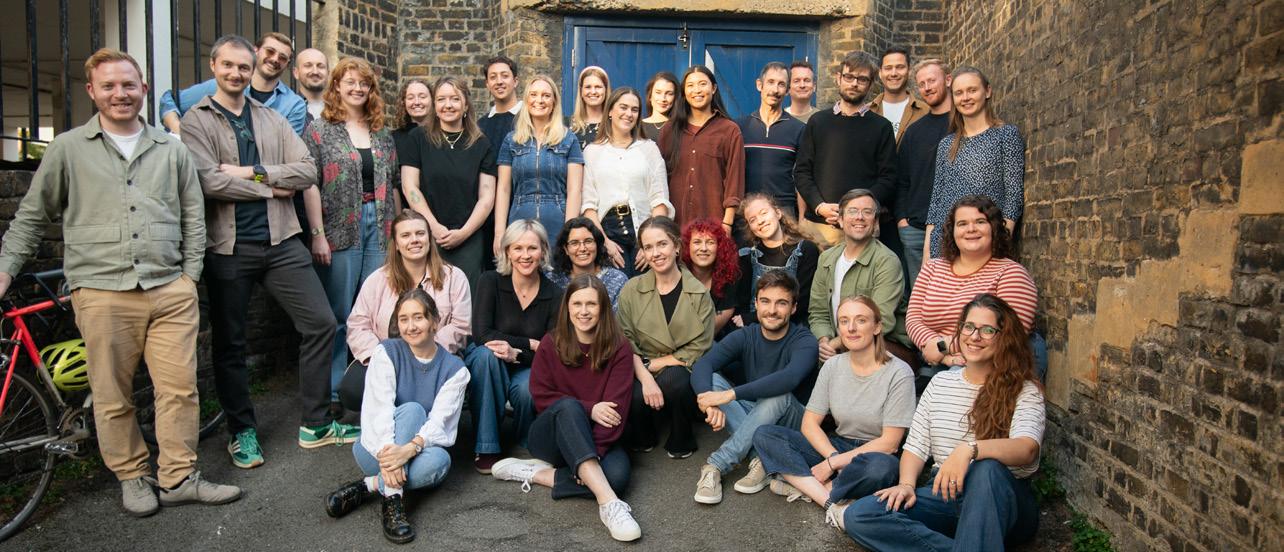
Sopranos
Briony Ashby
Fern Ashby
Violet Beaumont
Stella Bracegirdle
Irene Carter
Harriet Caddick
Anna Chapman
Alice Giles
Hattie Hunter
Clemmie Warner
Angela Waters
Altos
Helena Bayley
Grace Campbell
Teresa Dayrit
Grace Hewett
Alycia Jewes
Ellie McCowan
Sabrina Rodriguez
Charlotte Rutherford
Emma Smellie
Eleanor Warner
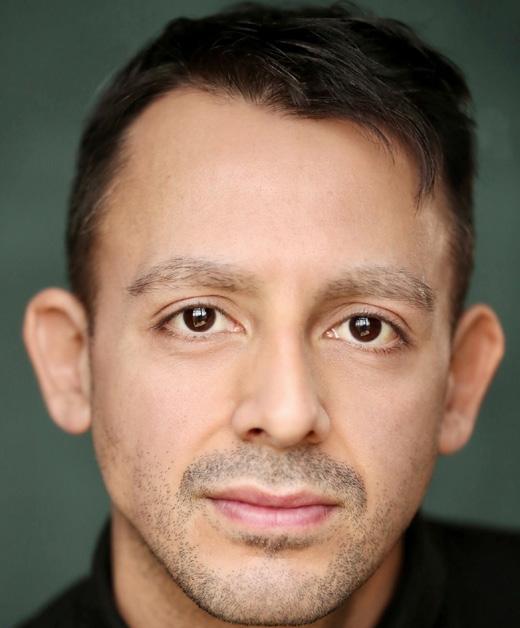
Tenors
Pablo Arnaiz
Mike Cannon
Sam Clarke
Dan Daly
Sam Herman-Wilson
Will Kilvington-Shaw
Chris Scholtens
THE CHOIR
Basses
Kevin Brau
Max Cockerill
Chris Coleman
Tristan Fanning
Tom Hansell
Ed Parks
Edwin Hughes
Tom Robinson-Woledge
Daniel Trott
MITCH HOWELL
Mitch is an actor and voiceover artist.
Theatre credits include The Corruption of Dorian Gray, Dracula and Secondhand Stories (The Lion and Unicorn Theatre), Julius Caesar (The Courtyard Theatre) and The Various Methods of Escape (The Bread and Roses Theatre).
Mitch frequently works with Evcol Entertainment voicing many characters in their radio plays including Midnight on the Rising Tide, Deer Hunt and the Nefarious series. For the episode The Absent Husband he was nominated for Audio Drama Best Male Performance at the One Voice Awards 2025.
Screen credits include Richard Hunter’s Foul Evil Deeds (2024), Lewis Peck’s Turquoise (2025) and Damien Brewer’s Rant (2025).
THE MUSIC
It was a real shock for many young Russian composers when, at the beginning of the 1970s, Alfred Schnittke – who was deeply respected and trusted in everything he did, and who had always been a consistent follower of the radical avant-garde in music – unexpectedly turned back to an almost conventional style and to the seemingly unjustified simplification of his musical language. It was difficult to accept, but it was the spirit of the times: tiredness and disillusionment with structuralism and complexity, as well as the rolling back to positions of a so-called ‘new simplicity’. But at the same time Schnittke suddenly won a great number of new admirers and worshippers, and since then his music has soared to the peak of its recognition and popularity.
One of the seminal works of Schnittke’s new style was the Concerto for Choir (1984/5). The premiere took place on 9 June 1986 at the State Pushkin’s Museum of Fine Arts in Moscow with the State Chamber Choir conducted by Valery Poliansky. Schnittke based his Concerto on the third chapter of ‘The Book of Lamentations’ by the Armenian monk Grigor Narekatsi (951-1003), translated into Russian by Naum Grebnev.
Everybody knew Schnittke’s strong interest in God and religion, a subject that has always been highly important for the Russian intelligentsia and always forbidden in Soviet times. This theme was raised again and again as a form of protest against communist ideology, for the freedom of the conscience and for the choice to believe or not.
Schnittke joined this ‘God-seeking’ division and had already written the Catholic Requiem in
1975, which was allowed by the authorities only because it was performed as incidental music for Friedrich Schiller’s play Don Carlos. The words of the Requiem have also been used as a text hidden underneath the instrumental lines of his Piano Quintet written between 1972 and 1976 in memory of his mother. His Second Symphony ‘St Florian’ (1979) was a ‘hidden’ or ‘invisible’ Mass, where instead of the Latin text the soloists and choir just sang ‘ah’. Der Sonnengesang des Franz Assisi (1976) was a ‘hidden’ work, never performed in Soviet Russia. Schnittke’s agonising search for the religion or congregation he belongs to was reflected in his Fourth Symphony (1984) – another ‘song without words’ – for four soloists, chorus and orchestra, where characteristics of Jewish, Orthodox, Protestant and Catholic religious music were merged in one strange multi-faceted combination.
In his Concerto for Choir, in spite of a slight flavour of ancient Armenian choral singing (such as the ‘empty’ parallel fifths of the opening phrase, or the mode with the augmented second and diminished octave in the third movement), Schnittke had chosen a clear model of the Russian choral concerto of the eighteenth century represented by such composers as Dmitry Bortniansky or Maxim Berezovsky, who made a strong influence on the liturgical music of such great Russian composers as Tchaikovsky and Rachmaninov.
The four movements of the Concerto reflect the four different subdivisions and themes of Narekatsi’s chapter: (i) the rapturous praise and appeal to God; (ii) the list of those whom the lamentations might be expected to reach; (iii) the hope of redemption and deliverance for
THE MUSIC
for those who will understand the essence of these words and for the poet himself who wrote them; (iv) the humble prayer asking God to complete these songs and give them a healing power.
The musical language of the piece is extremely simple: it is based on traditional harmony and familiar melodic formulae of Russian Orthodox music of the past, so-called ‘znamennyj raspev’ (a singing by signs or neumes). But listening to it again and again, one can recognize some typical elements of Schnittke’s style and even come to understand that the piece is a sort of microcosm or vocabulary of Schnittke’s personal musical language in its most open and clearly visible form.
We can point out some of its features: for example, a gradual forming of diatonic clusters, as at the second line of the first movement – ‘bestowing priceless gifts upon us’ (‘bestsennymi darami nas dar’ashchij’); the confrontation of the triads with a common third, as C sharp minor and C major by the words ‘invisible, eternal’ (‘nevidimyj, izvetchnyj’) or G sharp major and G major with the text ‘and terrifying and beneficent’ (‘i uzhasajushchij, i blagadatnyj’); the comparison of major and minor triads of the (enharmonically) same tonic as D sharp minor and E flat major expressing the words ‘treasure, purest rain’ (‘klad, prechistyj dozhd’); the extensive use of imitations or canons, as in the second and third movements; the use of chromatic scales in the melody and even chromatic moving clusters in the harmony, as in the third movement at the words about sin or death; use of wide intervallic leaps (sevenths, octaves or ninths) for the expression of some great and important ideas
such as ‘the burden of unredeemed sins’ (‘gruz grekhof neiskupl’onnykh’) in the third movement. This list goes on and on.
The dependence on the text was in this case especially enormous. Schnittke himself stated about the piece: ‘I wrote music which was evoked by this text, but not the music I wanted to write’. This phrase can explain a lot about the style and direction the composer was forced to choose, not by fashion nor a striving for popularity, but by the attentive listening to his inner voice, the trust in his own intuition and wish to express his most intimate and profound thoughts and feelings. The remarkable ending to the third movement, for example, evokes in music the “storm of unbelief” raging which is then calmed, quite brilliantly, with its D major cadence. In a similar way, the final movement is an imtimate setting of humble text, beautiful in its simplicity and bringing to life the idea that “my singing may become healling”. This vast work asks each singer across some twenty parts a points to stretch every sinew to bring Narekatsi’s at times extremely dark words to life.
O Pavelitel’ sushchevo fsevo, bestsennymi darami nas dar’ashchij, Gaspod’, tvar’ashchij fs’o iz nitchevo, nevedamyj Gaspod’, fseznajushchiji, strashashchij, i milaserdnyj, i neumalimyj, neizretchonnyj i nepastizhimyj, nevidimyj, izvetchnyj, neabjatnyj, i uzhasajushchij, i blagadatnyj.
Nepranitsajem Ty, neas’azajem i beznatchalen Ty, i neskantchajem, Ty – to jedinstvennaje, shto bezmerna, shto v mire podlinna i dastaverna, Ty – to, shto nam dajot blagaslaven’je, Ty – polden’ bez zakata, svet bes teni, jedinstvennyj dl’a nas radnik pakoja, shto prasvetl’ajet bytije mirskoje.
I bezgranitchnyj Ty, i vezdesushchij, Ty i sladtchajshij m’od i khleb nasushchnyj, neistashchimyj klad, pretchistyj dozhd’, vavek neiss’akajushchaja moshch. Ty i khranitel’ nash i nastavitel’, nedugi nashi znajushchij tselitel’, apora fsekh, fsevid’ashcheje zren’je, desnitsa blagadatnava daren’ja.
Velitchjem asijannyj, fsem ugodnyj, nash pastyr’ neustannyj, tsar’ bezzlobnyj, fsevid’ashchij, i dn’om i notchju bd’ashchij, sud’ja, pa spravedlivasti sud’ashchij.
Vzgl’ad negnetushchij, golas uteshen’ja, Ty vest’, nesushchaja uspakajen’je.
Tvoj strogij perst, fsevid’ashcheje oka asteregajut smertnykh at paroka. Sud’ja tavo, shto prava i neprava, nevyzyvajushchaja zavist’ slava. Ty svetatch nash, velitchije bes kraja, nezrimaja daroga, no pr’amaja. Tvoj sled nevidim, vidima lish milast’, ana s nebes na zeml’u k nam spustilas’.
Slava, shto ja izr’ok Tebe va slavu, bledneje slof, katoryje by mog uslyshat’ Ty, o Gospadi, pa pravu, kagdab’ ja ne byl retchju stol’ ubog. Gaspod’ blagaslavennyj, vaskhvalennyj, vasslavlennyj fsem sushchim va fselennaj,
The Text
Concerto for Choir I.
O master of all living things, bestowing priceless gifts upon us, God, creating all out of nothing, mysterious God, omniscient, frightening, and merciful, and implacable, ineffable and inscrutable, invisible, eternal, boundless, and terrifying, and beneficent.
You are unfathomable, intangible, without beginning and without end, You – the only one who is measureless, who is true and real in the world, it is You who give us blessing, You are a noon without nightfall, light without shadow, our only fountain of peace that lightens our temporal existence.
You are limitless and omnipresent, our sweetest honey and daily bread, an inexhaustible treasure, purest rain, for ever plentiful might.
You are a guardian and guide to us, a healer knowing our ills, support to all, an all-seeing eye, a hand of abundant giving.
Radiant with greatness, welcome to all, our tireless shepherd, benevolent tsar, all-seeing, vigilant day and night, a judge dispensing fair judgment.
A non-oppressive gaze, voice of comfort, You are a message bringing peace.
Your forbidding hand an all-seeing eye warns mortals against vice.
A judge of what is right and wrong, a glory that inspires no envy.
You are a light to us, limitless greatness, a path, invisible but straight. Your imprint is invisible, we can only see Your favour, it descend to us on earth from heaven.
The words I pronounce glorifying You are poorer than those You should hear, O God, by right, had I not been so poor in speech. God blessed, praised, glorified by all living in the universe,
The Text
fs’o to, shto nam dastignut’ suzhdeno, Tvaim vnushen’jem mudrym razhdeno.
O Gospadi, darogu atchishchen’ja
Ty mne v maikh samnen’jakh ukazuj i, prived’a men’a k vratam spasen’ja, udavletvaris’ i vazlikuj. Alliluja.
Tsel’ pesnapen’ja Tvajevo raba –ne slavaslov’je, i ne vaskhvalen’je, mai slava nitchtozhnyje – mal’ba, katoraj zhazhdu abresti spasen’je.
Sabran’je pesen sikh, gde kazhdyj stikh napolnen skorb’ju tchornaju da kraja ? slazhil ja, – vedatel’ strastej l’judskikh, –paskol’ku sam f sebe ikh paritsaju. Pisal ja, shtob slava dajti magli da khristian va fsekh krajakh zemli.
Pisal dl’a tekh, kto v zhizn’ jedva fstupajet, kak i dl’a tekh, kto pozhil i sazrel, dl’a tekh, kto put’ zemnoj svoj zavershajet i prestupajet rakavoj predel.
Dl’a pravednykh pisal ja i dl’a greshnykh, dl’a uteshajushchikh, i bezuteshnykh, i dl’a sud’ashchikh i dl’a asuzhd’onnykh, dl’a kajushchikhs’a i grekhom plen’onnykh, dl’a dabradejatelej i zladejef, dl’a defstvennikaf i prel’ubadejef, dl’a fsekh: dl’a radavitykh i bezbozhnykh, rabof zabitykh i kn’azej vel’mozhnykh. Pisal ja ravno dl’a muzhej i zhon, tekh, kto unizhen, tekh, kto vaznes’on. Dl’a pavelitelej i dl’a ugnet’onnykh, dl’a askarbitelej i dl’a askarbl’onnykh, dl’a tekh, kto uteshal i byl uteshen.
Pisal ravno dl’a konnykh i dl’a peshchikh, pisal ravno dl’a malykh i velikikh, dl’a garazhan i gortsef poludikikh, i dl’a tavo, kto vysshij vlastelin, katoramu sud’ja lish – Bog adin; dl’a sujetnykh l’udej i dl’a blagikh, dl’a inakaf, atshel’nikaf sv’atykh.
all we are destined to achieve is born by Your wise inspiration.
O God, show me in my doubts the path of purity and, guiding me to the gates of salvation, be content and rejoice. Alleluia.
The purpose of Your slave’s paean –not glorification or eulogy, my worthless words are a supplication –by which I long to obtain salvation.
I, an expert in human passions, composed these songs, where every verse is full to the brim with black sorrow, for I detest these passions in myself. I wrote so that my words could reach Christians in all corners of the earth.
I wrote for those who only now enter life as well as for those who have lived and matured, and for those completing their earthly journey and stepping over the fateful limit.
For the righteous and for sinners, for the comforting and the inconsolable, and for the judging and the convicted, for the penitent and those enslaved by sin, for do-gooders and villains, for virgins and adulterers, for all: the high-born and godless, downtrodden slaves and grand princes. I wrote equally for husbands and wives, for the degraded and those risen high. For rulers and for the oppressed, for abusers and the abused, for those who give or receive comfort.
I wrote for those on horseback or on foot, for the insignificant and for the great, for city-dwellers and savage highlanders, and for him who is supreme ruler, whose judge is God alone; for people who are vain or pious, for monks and holy hermits.
I stroki, polnyje maim stradan’jem, pust’ stanut dl’a kavo-ta nazidan’jem. Pust’ kajushchijs’a f tchornam pregreshen’ji najd’ot vmaikh pisan’jakh uteshen’je. Pust’ abratit moj trud, majo userd’je sebe va blaga tchelavek l’uboj. I stikh moj, staf malitvaj i mal’boj, da vymalit Gaspondne milaserd’je. Alliluja.
Fsem tem, kto vniknet f sushchnast’ skorbnykh slof, fsem, kto pastignet sut’ sevo tvaren’ja, daj, Bozhe, iskuplenije grekhof, asvabadi at t’agastnykh akof samnen’ja, a znatchit, prestuplen’ja. Zhelannaje daruj im atpushchen’je pust’ sl’ozy ikh abil’nyje tekut.
I golasam maim ani malen’je Tebe ugodnaje da vaznesut. K Tebe da vaznes’ots’a ikh mal’ba, i za men’a, za Tvajevo raba.
Pust’ Bozhe, na rabof Tvaikh pakornykh, na fsekh raskajavshikhs’a, kto pratcht’ot s utchast’em knigu etikh pesen skorbnykh, Tvoj svet i blagadat’ da snizajd’ot.
I jesli primesh tekh, kto fsled za mnoj prid’ot k Tebe s majej mal’boj userdnaj, vrata svajej abiteli sv’atoj atkroj i mne, o, Bozhe milaserdnyj.
I jesli sl’oznaja maja mal’ba pral’jotsa, slovna dozhd’, grekhi smyvaja, to i men’a, nitchtozhnanva raba, amojet pust’ jevo vada zhivaja.
I jesli Ty spas’osh, o Bozhe, fsekh, saglasnykh s mysl’ju mnoju izretchonnaj, Ty i men’a, prastif moj t’azhkij grekh, spasi, o Gospadi blagaslavennyj.
I jesli pesn’ maja v dushe inoj radit Tebe ugodnyje pan’at’ja, Ty men’a, Atets nebesnyj moj, ne abdeli svajeju blagadat’ju.
I jesli te, kto moj pastignet stikh, vazdenut vvys’ drazhashchije desnitsypust’ bol’ stenanij gorestnykh maikh
The Text
May these verses, full of my suffering, become a guidance to someone. May he who repents a black transgression, find comfort in my writings. May someone turn to his good my work, my zeal.
May my verse, turning into a prayer and supplication, elicit God’s mercy. Alleluia.
God, grant deliverance from sin to all who grasp the meaning of these mournful words, all who reach the essence of this work, free them from the baneful fetters of doubt, which are the same as crime. Give them the absolution they long for, let their abundant tears flow.
May their supplication, raised in my voice, please You. May they also raise a prayer for me, Your slave. God, may Your light and grace descend upon Your obedient slaves, all the repentant who read with sympathy this book of mournful songs.
And if You receive all those who in my wake come to You with my zealous prayer, open the gates of Your holy abode to me too, O merciful God.
And if my tearful prayer falls, like rain, washing away sins, may this water of life also wash me, Your base slave.
And if, O God, You save all those agreeing with the thoughts that I express, forgive my grave sins and save me too, O blessed God. And if my song inspires in some soul thoughts pleasing to You, my heavenly Father, do not deprive me of Your grace.
And if those who comprehend my verse raise their trembling handsmay the pain of my sorrowful moans
s malitvaj tchistaj ikh sajedinits’a.
I jesli skazannyje f knige sej Tebe mai ugodny budut retchi, to v mnogashchedraj milasti svajej bud’ milaserden i k maim predtetcham.
I jesli pakalebletsa, skarb’a, f sv’ashchennaj vere nekta, dukham nishchij, pust’ on, vaspr’anuf, f knige sej atyshchet aporu, upavaja na Teb’a.
Kol’ malaver adnazhdy ustrashits’a, shto khram jevo nadezhd ne ustait, pust’ etat shatkij khram Tvaja desnitsa strakami knigi skorbnaj ukrepit.
Kagda nedugam mutchimyj zhestoka, patchti utratit kto-ta s zhizn’ju sv’az, pust’ abret’ot on silu v vetikh strokakh i vazraditsa vnof’, tebe mal’as. I jesli smertnyj strakh ili samnen’je vdrug avladejut kem-ta iz l’udej, pust’ f knige on najd’ot uspakajen’je, najd’ot pakoj pa blagasti Tvaej.
I jesli gruz grekhof neiskupl’onnykh pat’anet f propast’ greshnika, pust’ on fsej sut’ju slof, Taboju mne vnushonnykh spas’on naveki budet i prashchon.
I jesli gde-ta greshnik jest’, katoryj ne minet sataninskaj zapadni, dazvol’ shtob trud moj byl jemu aporaj i Sam bezumtsa svetam aseni.
I jesli kto-ta v gibel’naj gardyne slava sv’atykh malitv zabyt’ gatof, dazvol’, shtob ja vernul jevo k sv’atyne magushchestvam Taboj vnushonnykh slof. I tekh, kto f sataninskam asleplen’ji uverujet f prezrennuju tshchetu, mne knigaj skorbnykh etikh pesnapenij dazvol’ vernut’ k pritchast’ju i krestu.
I uragan neverija, vzmet’onnyj, kak nad vadoj, nad dushami l’udej, smiri majeju pesnej, vdakhnavl’onnaj bazhestvennaju milast’ju Tvajej.
The Text
Join their pure prayer.
And if the thoughts expressed in this book are pleasing to You, be merciful to my ancestors in Your generous grace.
If someone poor in spirit wavers in the holy faith in a moment of grief, may he find support in this book and, taking heart, put his trust in You. If someone weak in faith begins to fear that the temple of his hope will fall, may Your hand strengthen the unstable temple with the lines of this mournful book.
When someone tormented by an illness almost loses his bond with life, may he find strength in these lines and rise again, praying to You. And if deadly fear or doubt suddenly seizes someone, may he find solace in this book, may he find peace by Your grace.
And if the burden of unredeemed sins pulls a sinner into the abyss, may he, by the power of words inspired in me, be saved and pardoned for ever. And if somewhere there is a sinner who does not escape the Devil’s trapAllow my work to be his support and set the fool right with Your own light.
And if someone in fatal pride is ready to forget the words of holy prayersallow me to bring him back to the faith by the power of Your words in me. Allow my book of sorrowful songs to bring back to the Eucharist and Cross those who persist in their contemptible vanity through Satanic blindness.
And let my song, inspired by Your divine mercy, calm the storm of unbelief that rages Over people’s souls, as over the water.
Sej trud, shto natchinal ja s upavan’jem i s imenem Tvaim, Ty zavershi, shtob pesnapen’je stala vratchevan’jem, tsel’ashchim rany tela i dushi. I jesli trud moj skromnyj zavershitsa s Tvaim blagaslavenijem sv’atym, pust’ dukh Gaspoden v n’om sajedinitsa sa skudnym vdakhnavenijem maim. Taboj darovannaje azaren’je ne pagasi, moj razum ne pakin’, no vnof’ i vnof’ prijemli vaskhvalen’ja at Tvajevo sluzhitel’a. Amin.
The Text
Complete this work which I began in hope and with Your name, so that my singing may become healing, curing the wounds of body and soul. If my humble work is finished with Your holy blessing, may the divine spirit in it join with my meagre inspiration. The revelation You have granted, do not extinguish it. Do not abandon my reason, but, again and again, receive praise From Your servant. Amen.
